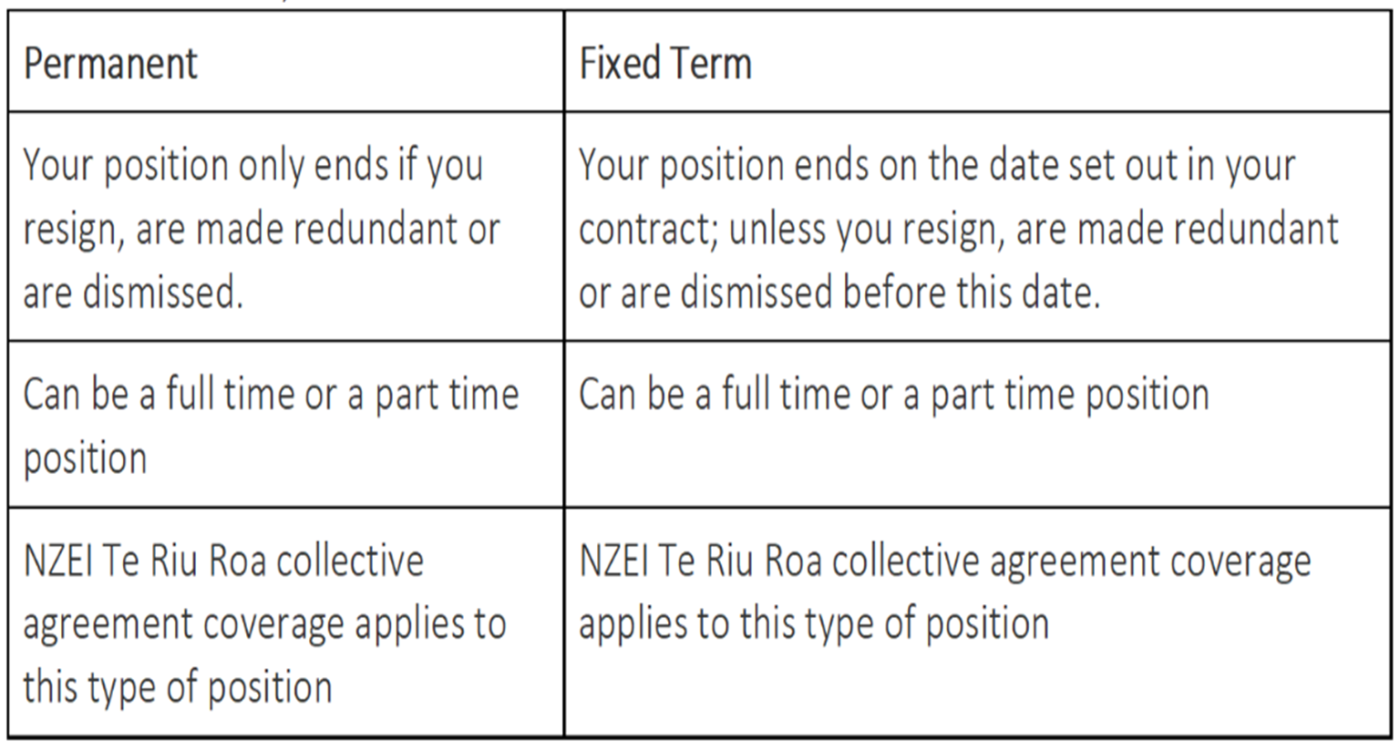Thinking – and talking – about your working conditions is a great way to ensure you get the best start in your new role.
What’s an Employment Agreement?
An employment agreement is an agreement between you and your employer – you’ve probably heard it mentioned before as a ‘contract’. Your employment agreement dictates what to expect about your role and your working conditions. All employees in all industries must have a written employment agreement. There are two types:
Collective Employment Agreements
If you work at Kindergarten, or an ECE centre which is party to the Early Childhood Education Collective Agreement, and you’re a member of NZEI Te Riu Roa, you’ll be covered by one of our Collective Agreements.
The great things about Collective Agreements include:
- Everyone knows what to expect – it’s transparent.
- It’s developed and negotiated with the employer by union members at your workplace.
- Nothing in a Collective Agreement gets changed without your say – those covered by Collective Agreements vote on any proposed changes.
- Those employed under Collective Agreements in any industry are more likely to have increases to pay regularly – and better working conditions – than those under individual employment agreements.
Find out about how you are stronger together when your employment is covered by a Collective Agreement.
If you work at a Kura Kaupapa Māori, Intermediate or Primary school, your employment is covered by the Primary Teachers Collective Agreement or the Area School Teachers Agreement.
Individual Employment Agreements
Individual employment agreements are negotiated between you and your employer directly. An individual employment agreement can be like other individual employment agreements in the workplace, or unique to that employee. Educators on individual employment agreements don’t have to have the same terms and conditions as other teachers or staff at their centre.
Things to think about if you have been offered an Individual Employment Agreement:
- Take it home with you and read each clause carefully. Do you understand what is required of you if you are sick, need leave or breaks?
- Are you happy with the remuneration (pay/salary)? As a qualified professional, your pay should reflect your qualification and allow you to live well. If you think you are worth more than what’s on offer, ask!
- Consider things like non-contact time (etc). Do you have a certain number of hours specified per week?
- Ensure that there is a time arranged to discuss the conditions fully with your employer. It’s important to be able to ask further questions about what’s in the agreement and ask for amendments to it
- Individual Employment Agreement contracts can have a 90-day trial period. This is at the discretion of the employer.
Want a second opinion on something you’ve spotted in your individual employment agreement? If you’re a member of NZEI Te Riu Roa, you can ask the Member Support Centre for advice on 0800 693 443 or email them at nzei@nzei.org.nz.
Not a member yet? Join online today!
What is the nature/tenure of a position?
A teaching position in any sector may be:
- Permanent, fixed term or casual.

Fixed term contracts are legally required to outline the reason they are fixed term. Genuine reasons include covering a parental leave position, or the completion of a particular project. A casual employee is someone employed on an on-call basis with no fixed term hours or days of employment. In the teaching profession, this mostly applies to teachers who are on call as relievers. You can still be an NZEI Te Riu Roa member if you’re working in education on a casual basis.